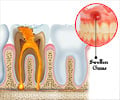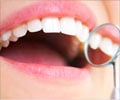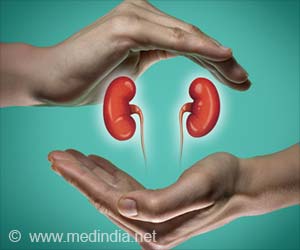Nearly half of scuba divers (41%) experienced dental symptoms in the water, finds new research.
Highlights
- Underworld conditions affect existing dental problems.
- Pressure training during scuba diving affects the teeth.
- Constant jaw clenching, jaw pain and broken fillings were reported among scuba divers.
Recreational divers should consider consulting with their dentist before diving if they recently received dental care, says Vinisha Ranna, BDS, lead author and a student in the UB School of Dental Medicine.
“Divers are required to meet a standard of medical fitness before certification, but there are no dental health prerequisites,” says Ranna, who is also a certified stress and rescue scuba diver.
“Considering the air supply regulator is held in the mouth, any disorder in the oral cavity can potentially increase the diver’s risk of injury. A dentist can look and see if diving is affecting a patient’s oral health.”
The research study was inspired by Ranna’s first experience with scuba diving in 2013. Ranna is also a certified stress and rescue scuba diver. She noticed a squeezing sensation in her teeth, a condition known as barodontalgia. Her goal was to identify the dental symptoms that divers experience and detect trends in how or when they occur.
Published research work on dental problems experienced while scuba diving is very scare so Ranna started to conduct her own research study. She conducted an online survey among 100 certified recreational divers. People under 18-years-old, ill or taking decongestant medication were excluded from the survey.
41 participants reported dental symptoms of which
- 42% experienced barodontalgia
- 24% experienced pain from holding the air regulator in their mouths too tightly
- 22% had jaw pain
- 5% of the scuba divers noticed loosened crowns
- 1 person reported broken dental filling.
Ranna hopes to see oral health incorporated into the overall health assessments for certification.
Additional investigators on the study include Hans Malmstrom, DDS, professor; Sangeeta Gajendra, DDS, associate professor; Changyong Feng, PhD, associate professor; and Michael Yunker, DDS, assistant professor, all of the University of Rochester School of Medicine and Dentistry. Ranna is conducting a follow-up study with an expanded group of more than 1,000 participants.
Precautionary Measures
Before the dive, the divers should ensure the following
- Dental decay and restorations are addressed.
- Evaluation of mouthpiece design to prevent jaw discomfort.
This is a mode of underwater diving in which the diver uses a self-contained underwater breathing apparatus (SCUBA) which is completely independent of surface supply to breathe underwater.
Recreational scuba diving is defined as pleasure diving to a depth of up to 130 feet. In the United States there are almost 9 million certified scuba divers.
Before you head for a scuba diving, stop by your dentist’s office because scuba diving can lead to jaw joint pain, tooth pain and gum disease. These symptoms are collectively known as ‘diver’s mouth syndrome’.
Tooth Squeeze or Barodontalgia
- It occurs during scuba diving when air is trapped in a dental filling or cavity.
- Symptoms of tooth squeeze include tooth pain after diving, bleeding around the gums or a broken teeth.
- V. Ranna, H. Malmstrom, M. Yunker, C. Feng, S. Gajendra. Prevalence of Dental Problems in Recreational SCUBA Divers: a Pilot Survey; BDJ; (2016; 221 (9): 577) DOI: 10.1038/sj.bdj.2016.825
- Scuba Diving - (https://rnli.org/safety/choose-your-activity/scuba-diving)
- Medical Problems of Recreational Scuba Diving - (http://www.aafp.org/afp/2001/0601/p2225.html)












